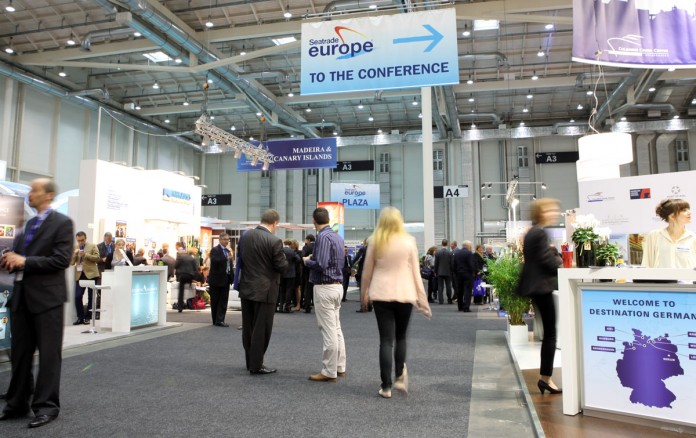
CLIA Europe has warned that a lack of port infrastructure, EU environmental laws and Europe’s restrictions on tourists from outside the EU are putting the brakes on market growth.
Pierfrancesco Vago, CLIA Europe’s chairman, said the cruise industry contributed €40.2 billion to the economy last year, up 2%.
However, he said growth was slower than in previous years and warned that although long-term trends remained positive, ‘the future could be much brighter’.
Speaking at the opening session of Seatrade Europe in Hamburg, Vago said: “A number of critical constraints to the industry’s further growth need urgent addressing if we want to ensure that the cruise industry will continue to be a solid contributor to Europe’s economy.”
He adde: “Many European ports are struggling to keep up with the cruise industry’s rapid growth. Upgrading port infrastructure throughout Europe is a necessary investment that would open new routes and destinations, and further boost the industry’s economic impact on land.
“We also need to make sure that more European ports have adequate facilities allowing cruise ships to discharge wastewater onshore.”
Talking about the inconsistent application of EU legislation in Europe’s ports, Raphael von Heereman, CLIA Europe’s secretary general, said: “The way certain pieces of EU legislation are applied across Europe can be compared to a patchwork quilt, which is affecting our ability to optimise our ships’ operational efficiency.
“The EU Sulphur Directive is a prime example. While cruise lines invest in expensive, open-loop scrubber technology to comply with the Directive, in remains unclear in which ports they will be able to use it. EU Member States need to focus on aligning the application of European legislation all their ports to avoid this confusion.”
Von Heereman said there was also a need for Europe to allow more tourists from outside the EU. “Europe is among the world’s most restrictive regions in terms of visa requirements for foreign nationals, and is subsequently losing six million potential tourists every year at a crucial time of economic recovery.
“The proposed EU Visa Code reform is a vital start to improving tourism flows in Europe. But the EU institutions must swiftly adopt and implement the new legislation, or risk depriving the EU of even more precious tourism revenues when it needs them most.”

























